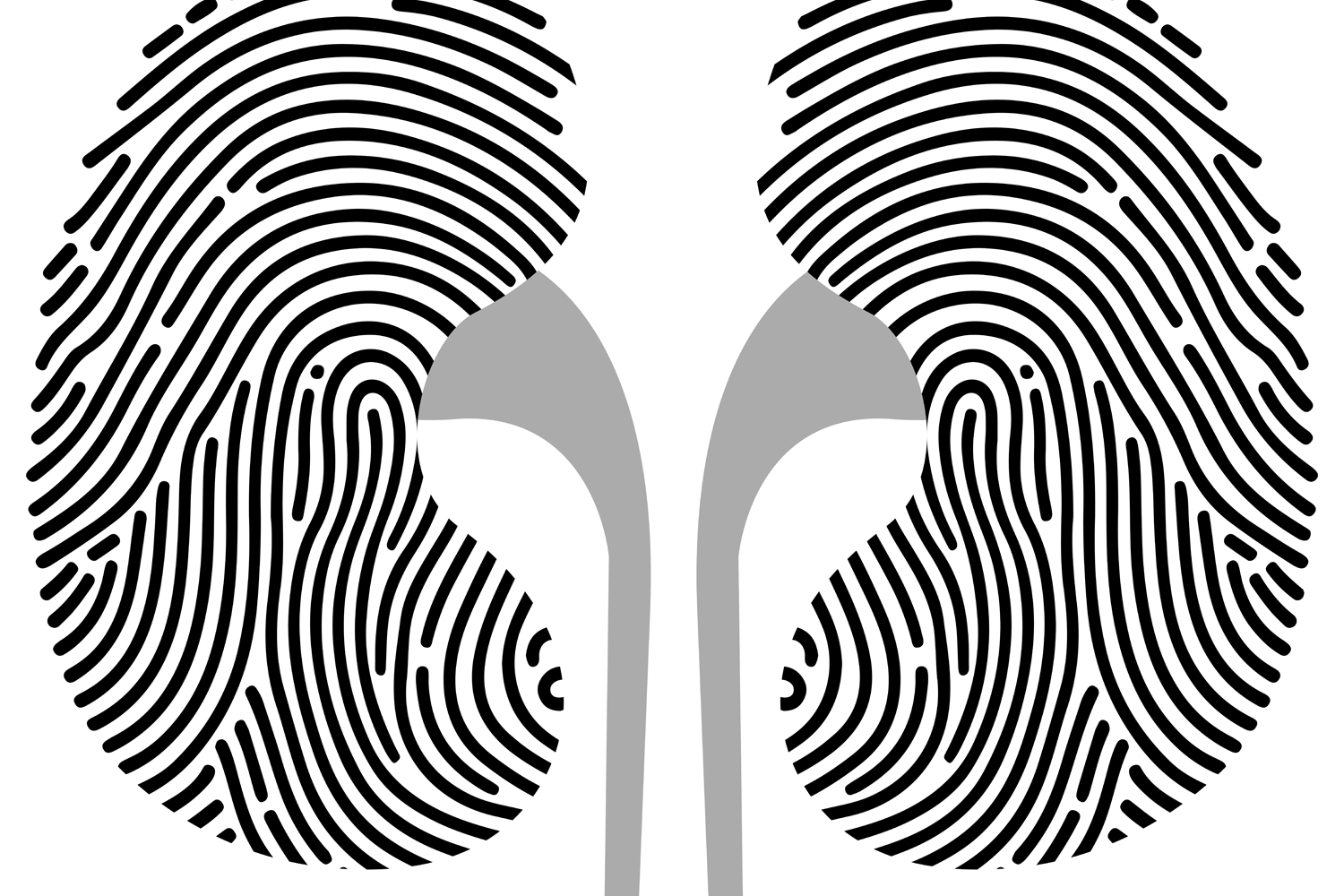SURGERY REMAINS THE mainstay of treatment for clear cell renal cell carcinoma (ccRCC), which is the most common type of kidney cancer. But cancer that has spread beyond the kidney to nearby areas often recurs even when all traces of cancer are removed. People with locally advanced ccRCC who have no evidence of cancer after surgery typically receive immune checkpoint inhibitors to try to heighten immune response and keep cancer from coming back. Still, about a third of patients with locally advanced ccRCC who have surgery will have a recurrence within three years.
A phase I clinical trial published Feb. 5, 2025, in Nature explored the use of a personalized vaccine to help improve those odds. Researchers developed a personalized vaccine, called a multi-epitope neoantigen vaccine, by sequencing a patient’s tumor to identify unique antigen signatures that are present only in cancer cells and not healthy cells. The research team used predictive algorithms to select up to 20 antigens likely to trigger an immune response based on specific mutations in the cancer.
“It’s a custom-made vaccine that’s designed to the fingerprint of their tumor,” says David Braun, a medical oncologist at Smilow Cancer Hospital at Yale New Haven in Connecticut and senior author of the study.
The trial enrolled nine people who were diagnosed with stage III or IV ccRCC. Participants received the personalized vaccine on days 1, 4, 8, 15 and 22 and a booster during week 12 and week 20. At a median of 40.2 months, none of the participants had a cancer recurrence. The vaccine also increased certain types of T cells in the blood, with the increase persisting years after the last dose.
Researchers noted patients experienced some mild to moderate side effects, including injection site reactions and transient flu-like symptoms, after receiving the shots.
In addition to receiving the vaccine, five of the nine patients also were given the immune checkpoint inhibitor Yervoy (ipilimumab) to give the immune system an extra boost to help it recognize the vaccine. The other four people only received the personalized vaccine. Between the two groups, “we didn’t really notice any big differences” in terms of the magnitude of the immune response after vaccination, Braun says.
Immune checkpoint inhibitors can stimulate the immune system to fight ccRCC, Braun says, but “they don’t tell it directly to attack the cancer cell. And that’s really where our hope is: that an antigen-directed therapy, specifically a cancer vaccine, [will act like] a steering wheel to help steer the immune system towards the tumor specifically.”
“The exciting aspect of this study, and this work in general, is that the technology has clearly evolved,” says Pavlos Msaouel, a medical oncologist at the University of Texas MD Anderson Cancer Center in Houston who was not involved in the study. Msaouel was encouraged by the data that showed all the participants launched an immune response to the peptides in the vaccine. He was enthused that researchers were able to design a personalized vaccine for a cancer that has relatively few mutations to target.
Still, the research findings only include a handful of patients, Braun cautions. “I always want to give the caveat that with nine patients, you can’t track too many conclusions,” he says.
Braun says he’s excited about the vaccine’s potential to extend the time that people who undergo surgery for locally advanced ccRCC can live without recurrence. In this population, recurrences typically happen within three years of surgery. However, after more than three years of the study, “none of the nine patients had their cancer come back,” he says.
Cancer Today magazine is free to cancer patients, survivors and caregivers who live in the U.S. Subscribe here to receive four issues per year.





